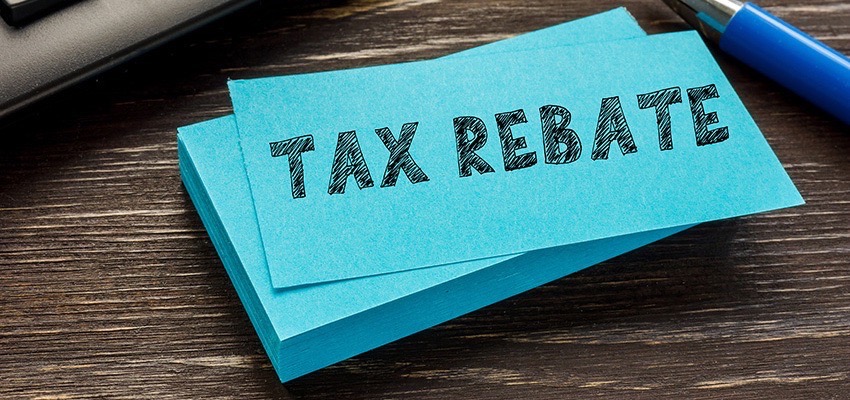You must pay a capital gain tax* on the profit you earn after holding capital assets for a prescribed duration. The capital gain income on various capital assets is classified as long-term and short-term capital gain based on the asset’s holding period.
Investment in various categories of assets, such as property and gold, is common within Indian households. Families procure these assets and may sell them off to meet urgent financial requirements like educational fees, medical treatment expenses, or a wedding in the house.
However, do you know that there are tax* implications on the sale of such assets in our country based on the duration of their holding? Moreover, you may be surprised to know that you can get tax exemptions by reinvesting your capital gains in a capital gains account scheme.
Adhering to tax implications is essential for all law-abiding citizens. Therefore, let us delve deeper into the concept of capital gain taxation.
What is Capital Gains Income?
Capital gains income is the profit you earn when you sell a capital asset at a price exceeding its purchase price. Shares, mutual funds, houses, lands, vehicles, gold, etc., are examples of capital assets. However, income generated from the sale of an inherited capital asset is not considered capital gains income for the purpose of taxation.
Capital gains are further classified as long-term capital gains and short-term capital gains. The asset's holding period determines whether a capital asset should be taxed as a long-term or a short-term capital gain.
The holding period for capital gains is the duration between acquiring and selling a capital asset. An asset’s holding period determines its taxability, and various assets have different holding period thresholds for the purpose of taxation.
Now, let us understand long-term and short-term capital gains on the basis of the holding period:
What are Long-Term Capital Gains?
If you hold an asset for more than the prescribed period from the date of its acquisition, long-term capital gains are applicable to it. Here is the holding period for various types of capital assets to classify them as long-term capital gains:
- Sale of a real estate property after 24 months of acquiring it.
- Sale of mutual funds/stocks and other securities listed on a stock exchange 12 months after acquiring them.
- Sale of debt funds and other capital assets after 36 months of acquiring them.
What are Short-Term Capital Gains?
Short-term capital gains are generated when you hold a period for less than the prescribed period and sell it off for a profit. Here is the holding period for various types of capital assets to classify them as short-term capital gains:
- Sale of a real estate property within 24 months of acquiring it.
- Sale of mutual funds/stocks and other securities listed on a stock exchange within 12 months of acquiring them.
- Sale of debt funds and other capital assets after 36 months of acquiring them.
Capital Gain Tax Rate for Sale of an Asset Based on Their Holding Period
Type of Asset |
Holding Period of the Asset |
Applicable Tax Rate |
||
|
Short-Term |
Long-Term |
Short-Term |
Long-Term |
Immovable Assets like land, buildings, etc. |
< 2 Years |
> 2 Years |
As per the income tax slab rate. |
20.8% (with indexation) |
Movable Assets like gold and Debt Oriented Mutual Funds |
< 3 Years |
> 3 Years |
As per the income tax slab rate. |
20.8% (with indexation) |
Listed Shares and Equity Oriented Mutual Funds |
< 1 Year |
> 1 Year |
15.60% |
Tax-exempted |
Here are a few things to note:
- Only those shares will be taxed under capital gain tax, which have been sold on a registered stock exchange in India, and the security transaction tax has been paid on these shares.
- The tax rates represented above do not include the 10% surcharge you will have to pay for an income between ₹50 lakhs and ₹1 crore. The surcharge is 15% for an income above ₹1 crore.
Capital Gain Taxation

Here are the various formulas for the calculation of capital gain tax based on the asset’s holding period:
- Short-Term Capital Gain
Short-Term Capital Gain = Sale Value of Asset - (Cost of Acquisition + Cost of Improvement + Cost of Expenses Incurred on Transfer)
- Long-Term Capital Gain
Long-Term Capital Gains = Full Value of Consideration Received - (Indexed Cost of Acquisition + Indexed Cost of Improvement + Cost of Expenses Incurred on Transfer)
The indexed cost of acquisition and improvement can be calculated as follows:
Indexed Cost of Acquisition = Cost of Acquisition * (Cost of Indexation of the Year of Transfer / Cost of Indexation of the Year of Acquisition)
Indexed Cost of Improvement = Cost of Improvement * (Cost of Improvement of the Year of Transfer / Cost of Improvement of the Year of Improvement)
Conclusion
The capital gain tax is applicable on the profit you earn from the sale of a capital asset, like land, building, jewellery, stocks, mutual funds, etc. Various assets are taxed differently based on their holding period. You get tax exemptions under some situations on your capital gains income.
Moreover, you can invest in a capital gains account scheme to reinvest your capital gains.







 FOR EXISTING POLICY
FOR EXISTING POLICY 
 FOR NEW POLICY
FOR NEW POLICY 




